Sustainable Gifts, Unclear Goals
In the last Future Barometer of the year, we have asked questions about sustainability and circular economy to the members of Kairos Future Friends, our network of people in managing positions around Sweden, both in the private and public sector.
Sustainability work is established in Sweden and almost all organizations have some kind of sustainability strategy – but the goals are not as clearly defined as one might have hoped. However, a personal commitment to the circular economy is quite clear among people in leading positions.
Sustainability is a fact
When asked if their organisation conducts some form of sustainability work, without going into detail, the answer is that virtually all Swedish organizations are engaged in this, a slight increase from 2022: sustainability has been in focus despite a stormy world. This differs slightly from industry to industry, and in areas with concrete products and materials such as construction, crafts and technology, almost 100 percent of respondents say that sustainability work is carried out within the organization. The lowest percentage is in marketing and advertising, but even there three out of four organizations are actively engaged in sustainability work.
While sustainability strategies are common, many are not very concrete and are vaguely defined. However, most organizations have set fairly concrete goals for what sustainability work should entail – and this has even become clearer over the past year, with some improvement since we asked this 2022. However, there is still work to be done for some Swedish companies and organizations.
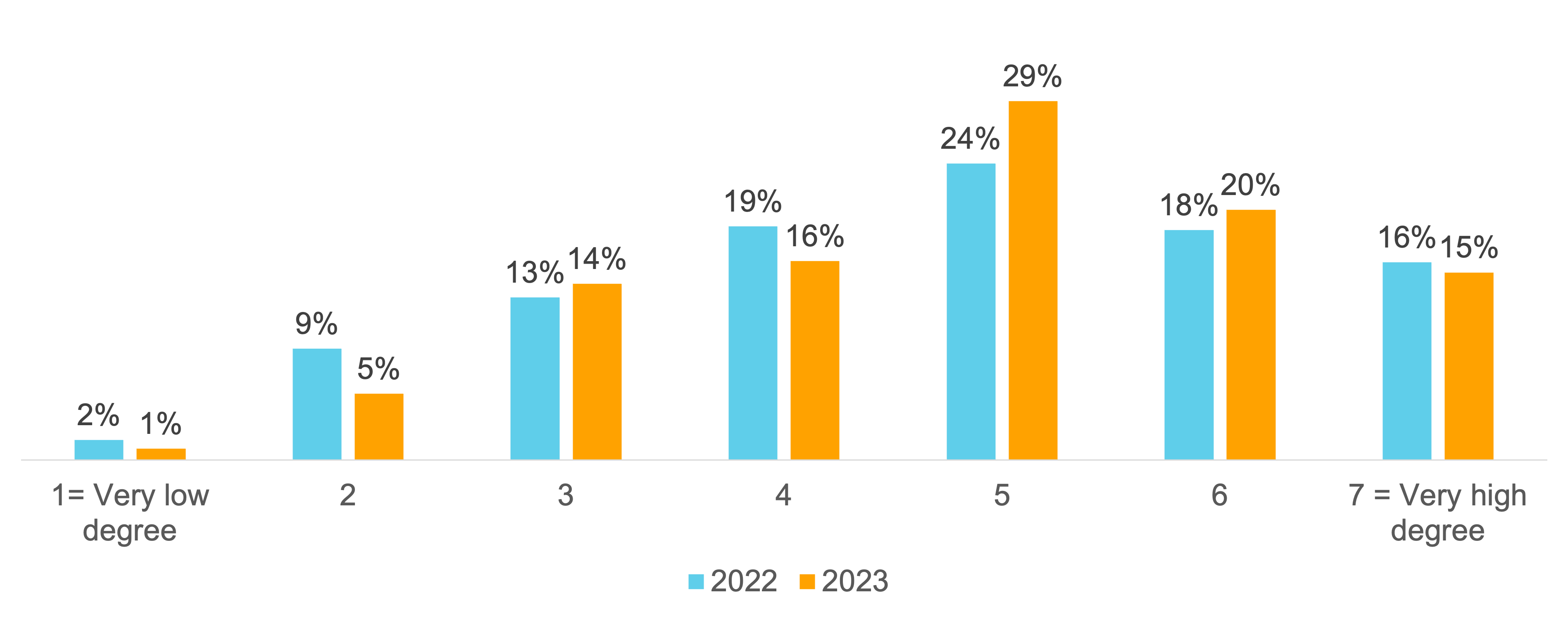
Figure 1: Response to the question To what extent does your organization have clear objectives for sustainability work?
Of those who stated that their organization conducts some form of sustainability work, around two-thirds have fairly or very clear objectives. A third are a little more uncertain, stating that the objectives are not quite so clear. However, the proportion saying that the goals are extremely unclear – rating it with one or two on the scale – has halved since 2022, so there has been progress in this area and improvements in sustainability work.
Circular economy
The topic of circular economy has long been discussed in the context of sustainability more generally. The concept is roughly defined as the opposite of a wear-and-tear economy, in which materials are reused, the life of gadgets is extended, and the amount of "new" materials added to the economy is limited. Again, there is much discussion in workplaces around Sweden about the circular economy, both for sustainability and economic reasons.
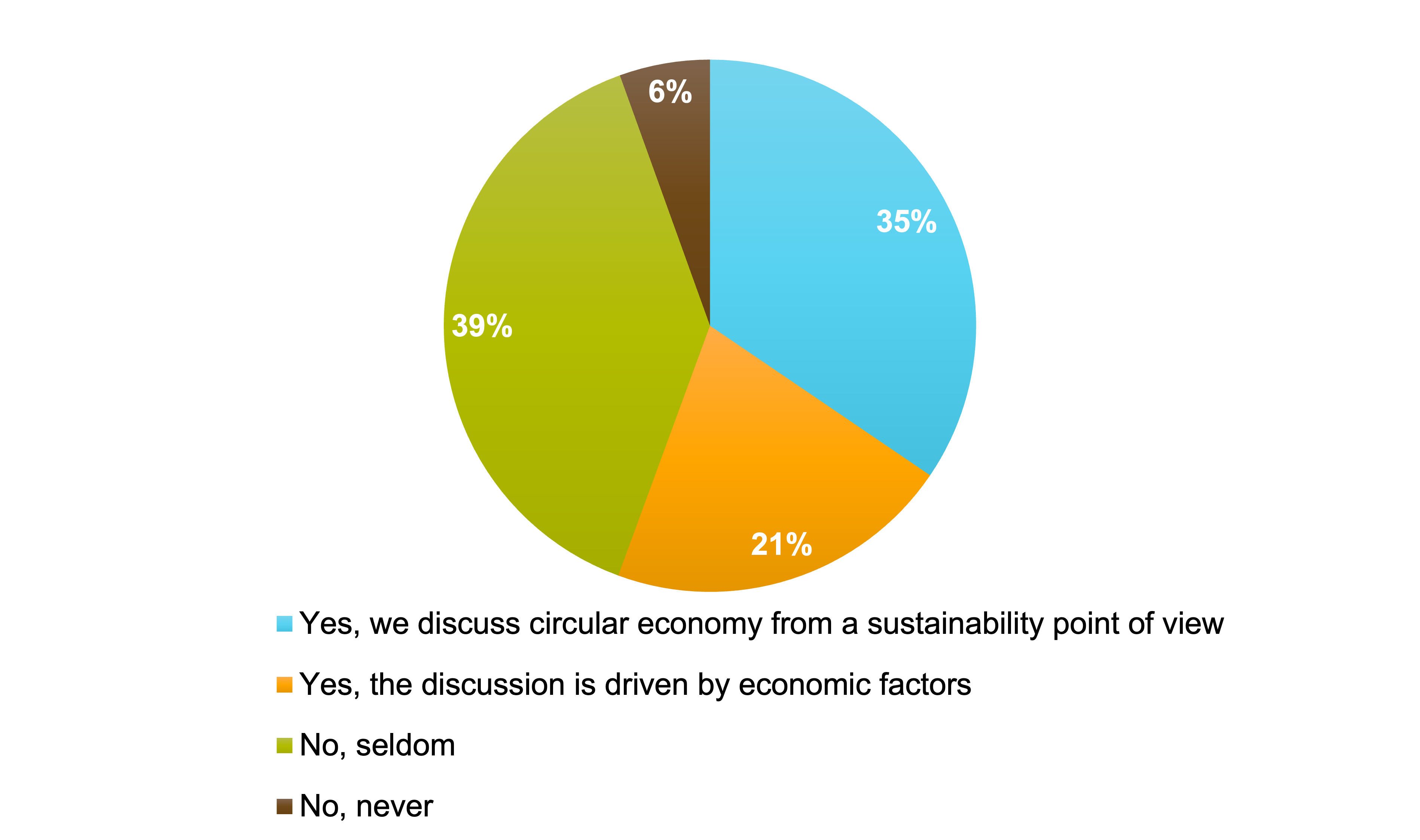
Figure 2. Response to the question Is there a discussion about circular economy at your workplace?
More than half of Swedish organizations have some kind of conversation about the topic, and it is mainly from a sustainability perspective. About a third focus on sustainability, with another fifth motivated by economic factors. The circular economy has not come as far as sustainability work in general, but almost half of Swedish organizations have some kind of plan to implement a circular value chain. Given that for many organizations such a strategy is not relevant, this is still a pretty good rating, even though just over a third of the organizations state that they could work with the circular economy – but are not yet doing so.
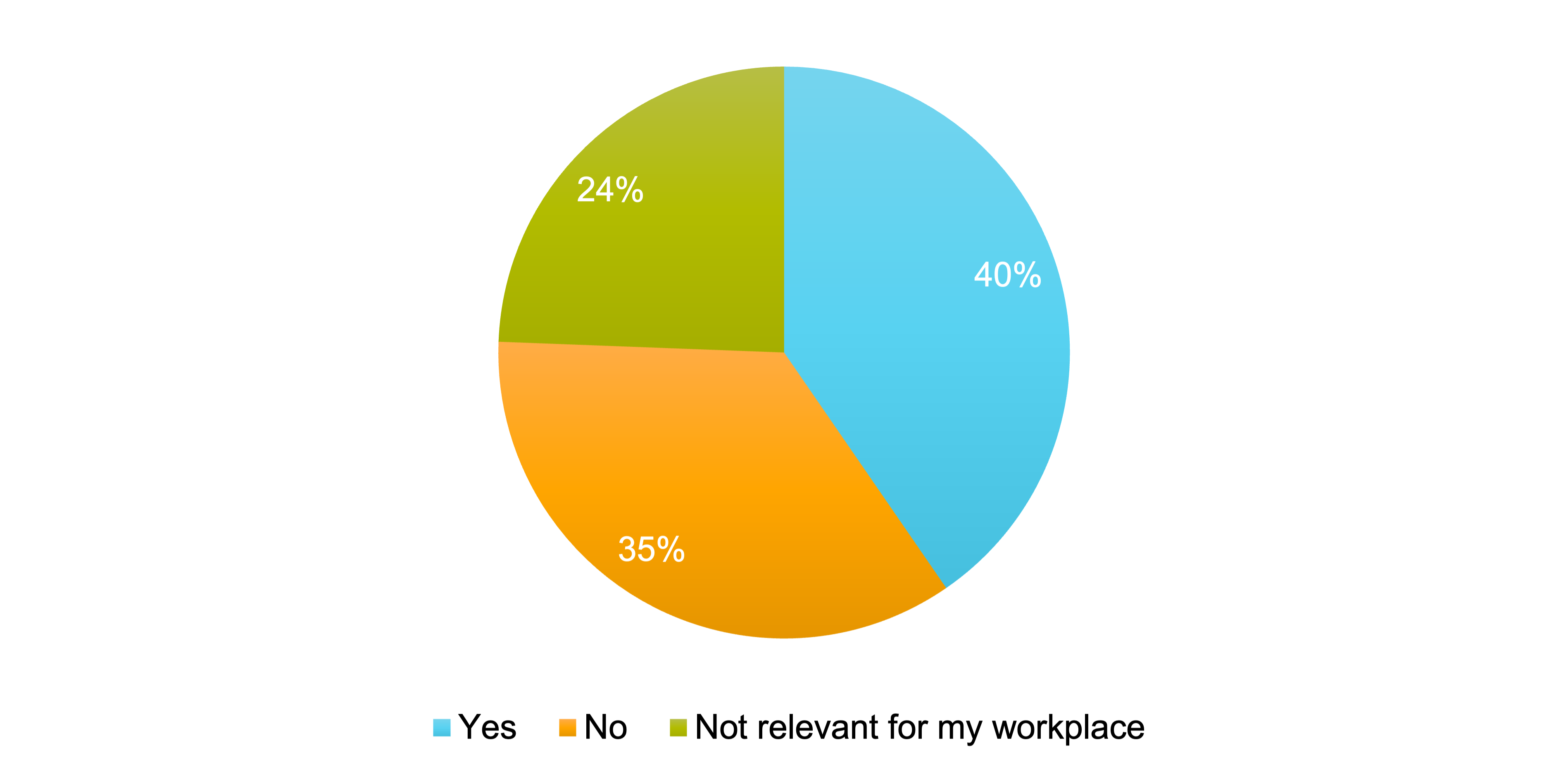
Figure 3. Response to the question Is there a strategy in your workplace to implement a circular value chain?
It seems that Sweden is slowly but surely implementing the circular economy, with a slight increase in sustainability focus among companies in recent years despite the difficult economic situation. Most business and organizational leaders also agree that change will need to be slow and gradual, so perhaps it's to be expected – but it is encouraging that the trend is moving in the right direction. Only one in five leaders expect some kind of radical change in the transition towards a more circular economy and a more sustainable society. But even if things are slow at work, the vast majority are open to the idea in their personal lives, which is reflected in their attitude towards circular Christmas gifts. A 'circular' Christmas gift is something that more than half of managers would consider giving – so don't be surprised to see circular gifts at the 2023 holidays. Only a small minority find sustainable Christmas gifts inappropriate, and overall, eight out of ten would consider a circular Christmas gift either at work or at home.
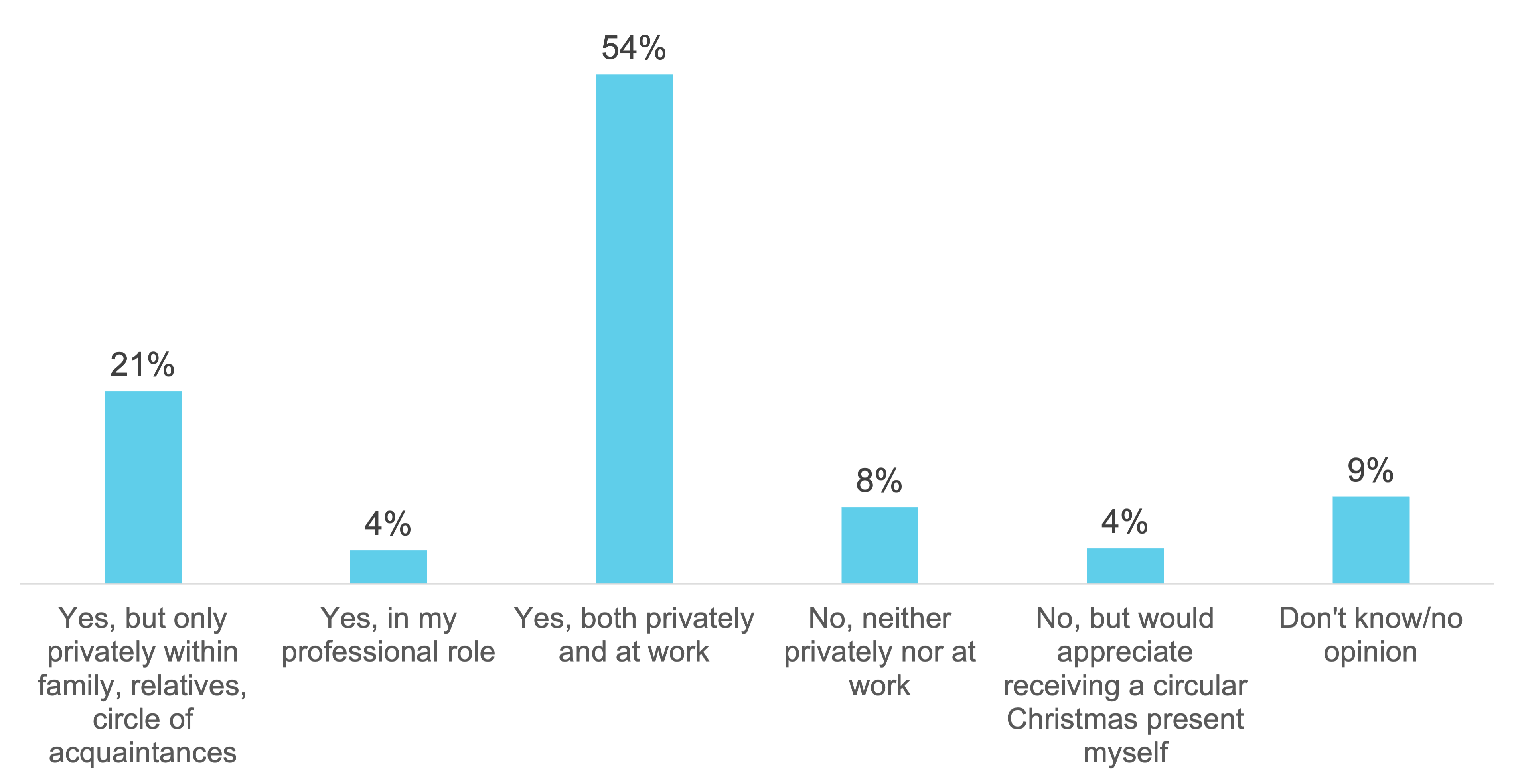
Figure 4. Response to the question For the upcoming Christmas holidays, would you consider giving a circular Christmas gift (homemade, second-hand, repair, recycled, i.e. not newly produced)?
Future index for the end of the year
The fact that sustainability work is still going on despite difficult economic times is admirable – and the fact is that although the future index is currently pointing downwards, some sub-indices are fluctuating. In fact, when asked about the economic situation ten years ahead, survey respondents are considerably more positive, and even the future of the industry looks a little better. What drags down the index are the more short-term issues - almost a fifth of organizations plan to reduce their workforce in the next 3 months, and the mood at work is quite dark. Twelve percent say that the mood in the workplace is fairly or very bad, compared to seventeen percent who say it is very good – historically this is very depressing.
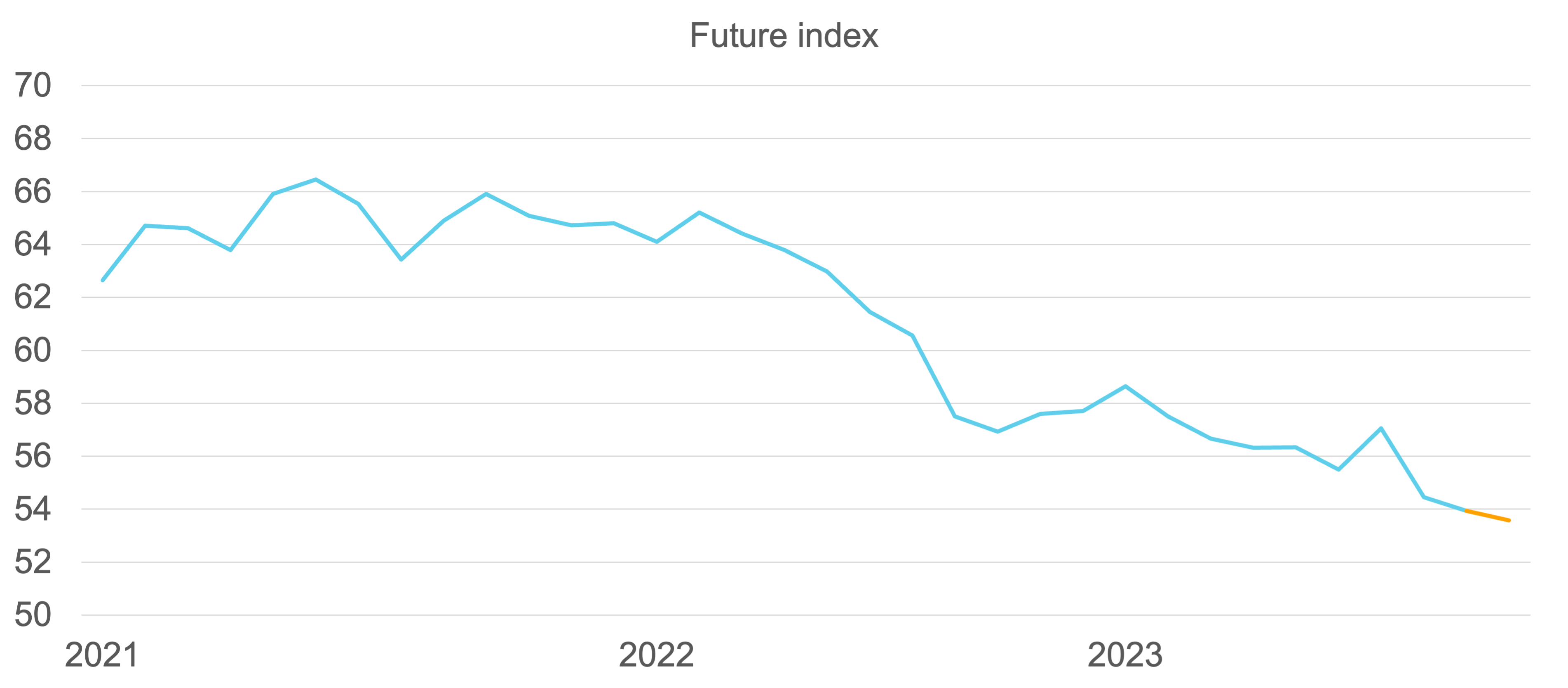
Figure 5. Future index November 2023.
Hopefully this is temporary, an effect of the current darkness and tough times. All in all, the short-term situation means that the future index is still sliding downwards, even if it brightens with a slightly longer time horizon. Let us hope that things will lighten up after the winter, both literally and figuratively.
